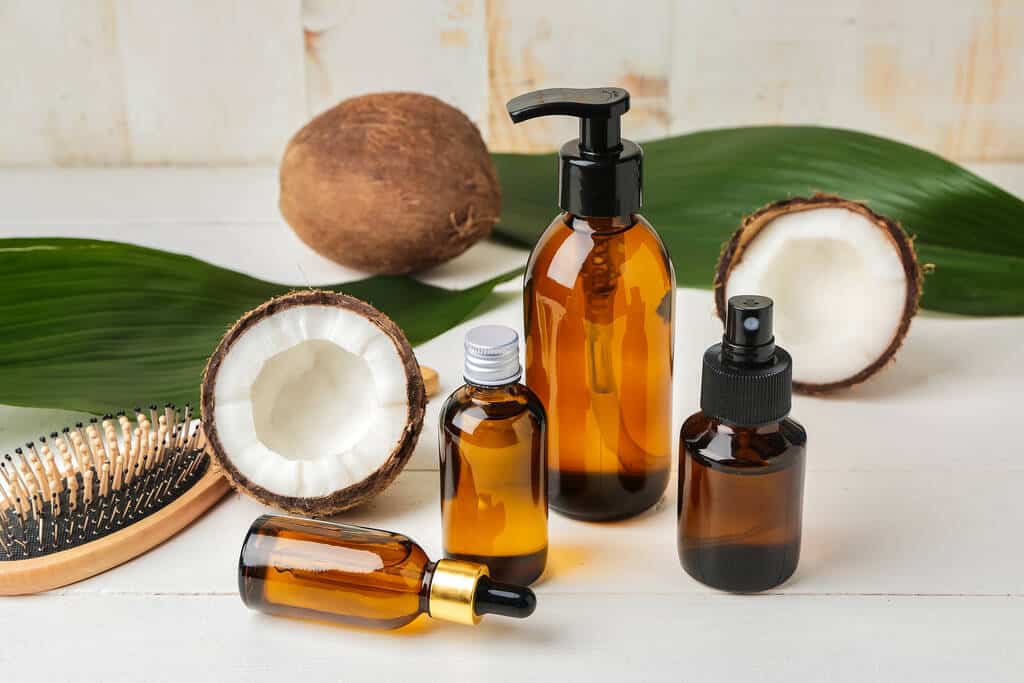What Are the Best Organic Oils for Effective Skincare?

Natural oils have been cherished for centuries due to their incomparable performance in hydrating, soothing, and protecting the skin among various cultures. With the turn of modern skincare towards natural and additive-free solutions, coconut oil, aloe vera, and jojoba have taken centre stage once again. So, if you’re looking for effective, gentle, and versatile products to revitalise your skin, natural oils might become your new skincare essentials.
Today, let’s explore natural oils for skincare to learn how they work & benefit different skin areas and how to incorporate them into your routine for soft, glowing, and healthy skin.
Why Choose Natural Oils for Your Skin?
From moisturising dry skin to soothing inflammation, natural oils offer a multi-functional approach to skincare that caters to various needs. We’ll talk more about each oil’s skin benefits below. More notably, many dermatologists stated that organic oils such as coconut and sunflower seed oil are rarely associated with allergic reactions. That means most skin types will not have an adverse reaction to such oils. However, as with any skincare product, you must find the oil that best suits your skin’s unique needs.
Coconut Oil: Nature’s All-in-One Moisturiser
Coconut oil is one of the most common natural oils used in skincare. It is rich in fatty acids, especially lauric acid, which deeply hydrates the skin, leaving it soft and supple. A little bit applied after a shower will help lock in moisture. It can also be used as a Body and Massage Oil to relax and soften the skin. No matter how you use it, coconut oil can help soothe irritated or dry skin due to its antimicrobial and anti-inflammatory properties. Plus, it’s a budget-friendly option. However, avoid using coconut oil on acne-prone facial skin since it may block pores. Coconut oil is an amazing choice for most people, but those with oily skin or acne should avoid using it on their faces.
Jojoba Oil: Lightweight Hydration for Sensitive Skin
Jojoba oil nourishes sensitive or easily irritated skin with gentle and effective hydration that does not overwhelm the skin. Originating from Mexico and the American Southwest, jojoba oil is derived from the seeds of the jojoba plant and has been used medicinally for centuries. Researchers have found that jojoba oil has anti-inflammatory and wound-healing properties, making it very useful for a range of skin concerns.
Jojoba oil also closely resembles the skin’s natural sebum and is excellent for balancing skin moisture, promoting healing, and soothing inflammation. Jojoba oil works well with other natural ingredients like aloe vera and argan oil. When combined, these three natural ingredients make for a naturally pampering massage oil that hydrates the skin with a non-greasy feel.
Shea Butter: Good Choice for Sensitive Skin
Shea butter is a natural, fat-like material that comes from the seeds of the African shea tree and is typically seen in a solid state. According to dermatologists, allergic reactions from shea butter are very rare, making it a good choice for sensitive skin.
Shea butter moisturises the skin and reduces wrinkles. Blended with other oils, like olive oils or coconut oil, it creates a smoother texture that’s easier to apply. Want to experience the hydrating benefits of shea butter perfectly paired with the refreshing essence of cranberry and the nourishing properties of Dead Sea minerals? Try the exceptional Juman body butter, which makes your skin soft with a healthy glow.

Cooking Oils vs. Skincare Oils: What’s the Difference?
Most of us keep cooking oils like olive oil and sunflower seed oil in our kitchens, but can we use these oils for skincare?
You might be tempted to spread any cooking oil on the skin, but not all oils are created equal, so to speak. All refined cooking oils are deprived of some of their nutrients. Extra-virgin cold-pressed organic unrefined oils retain most of their nutrients and are better skincare oils that hydrate or repair the skin. For example, while refined coconut oil is great for cooking, unrefined coconut oil is ideal for skincare. Similarly, extra-virgin olive
oil and cold-pressed sunflower seed oil are better choices for skin applications than their refined counterparts. By understanding the differences and benefits, you can choose the right oil to nourish and protect your skin naturally.
Olive Oil for Skincare
Olive oil contains a lot of vitamins A, D, E, and K that help moisturise and nourish the skin. Extra-virgin olive oil is, in fact, the best variety because its processing is minimal and preserves all the beneficial nutrients. Its heavier consistency makes it perfect for all-over body application. That makes olive oil cleansers and soaps gentle, providing effective cleansing without stripping your skin of its natural oils. However, people with acne-prone skin should avoid olive oil since the richness might cause a clog in the pores.
Sunflower Seed Oil for Skincare
Sunflower seed oil is another kitchen staple that can do wonders for your skin. Rich in vitamin E, it absorbs very well into the skin, so it’s also good at maintaining your skin’s barrier. It is particularly wonderful for sensitive skin, and scientists have found sunflower oil possibly more useful than olive oil for problems like eczema-prone or atopic dermatitis. Its light consistency is also better suited for acne-prone skin.
How to Choose the Right Oil for Your Skin Type
The perfect organic oil for your face or body is linked to your skin type. Here’s how to choose:
- Dry Skin: Use ultra-nourishing and hydrating oils, such as coconut oil or argan oil.
- Sensitive Skin: Soothe your skin with aloe vera oil or jojoba oil.
- Oily or Acne-Prone Skin: Use light, non-comedogenic oils like jojoba oil or grapeseed oil.
If you’re new to natural oils, start with small amounts and observe how your skin responds. Oils are absorbed within 15 minutes; if your skin feels greasy, you may be applying too much.
Safety Tips for Using Natural Oils for Skincare
- Time of Day: Use oils more liberally at night to avoid risks associated with sun exposure during the day. In the morning, apply a thin layer and follow with sunscreen.
- Spot Test First: Apply a small amount of oil to a patch of skin, testing for reactions before full use.
- Avoid Facial Breakouts: Oils like coconut may clog pores on acne-prone faces; instead, the focus should go to using them for body hydration.
Summing It Up
Natural oils have their simple but efficient means of taking good care of the skin with hydration, nourishment, and soothing relief. Understand how high-quality, naturally derived products are used in a truly thoughtful way for soft, radiant & healthy skin.
Ready to benefit from these natural oils? Explore our shop today. At Jericho Skincare ANZ, we offer skincare products rich in organic oils and other nourishing ingredients.






